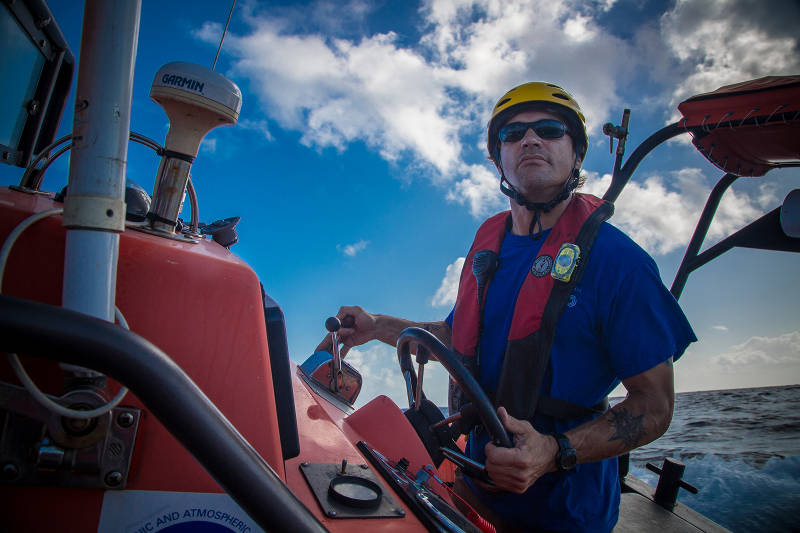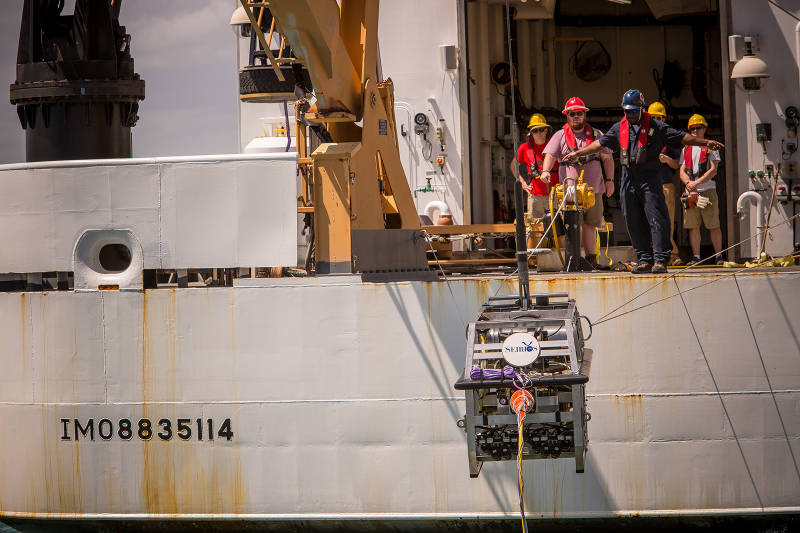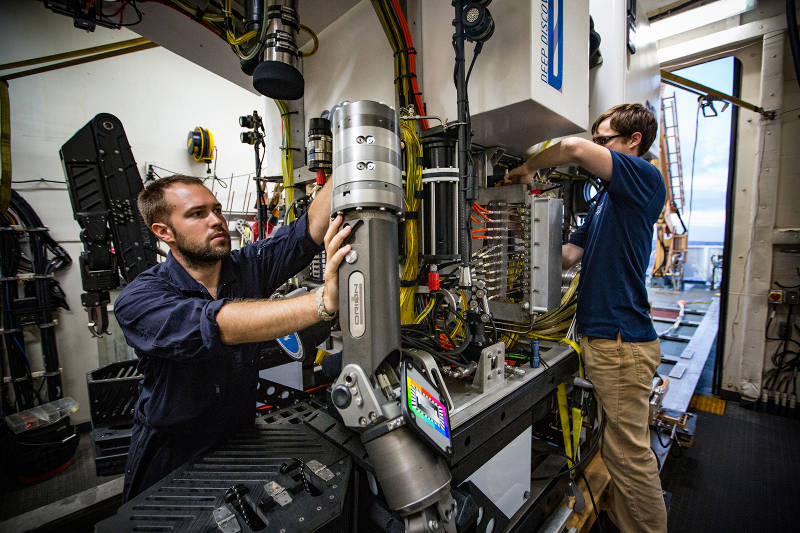
By Mackenzie Gerringer - Graduate Student, University of Hawaii
August 4, 2015

Chief Boatswain, Jerrod Hozendorf drives the Fast Rescue Boat during training exercises. Image courtesy of the NOAA Office of Ocean Exploration and Research, 2015 Hohonu Moana. Download larger version (jpg, 3.9 MB).
If you’ve been tuning in and thinking to yourself, “This deep-sea research thing looks great; get me involved!”, you may be wondering where to start. Here are some thoughts for the prospective student of deep-sea biology.

Able-bodied Seaman Abe McDowell directs deck operations during remotely operated vehicle deployment operations. Image courtesy of the NOAA Office of Ocean Exploration and Research, 2015 Hohonu Moana. Download larger version (jpg, 4.2 MB).
Build a strong science background. If you’re like me and you’ve known that you want to be a marine biologist since you were in first grade, you may be tempted to focus on ocean science right from the get-go. However, having a strong general biology, chemistry, and physics background is neccessary to success in studying the deep sea. You’d be surprised how something from a human physiology course can inspire questions about how a deep-sea creature survives under high pressure. Or how learning basic robotics and some computer programming can help you understand how a fish swims.

ROV Engineers, Jeff Laning and Bobby Mohr make final adjustments before a dive. Image courtesy of the NOAA Office of Ocean Exploration and Research, 2015 Hohonu Moana. Download larger version (jpg, 5.2 MB).
Don’t skip English class. Science centers on writing and communication. Being able to clearly and succinctly put forth your ideas is vital. As a high school student and undergraduate, seek feedback on writing clear essays and professional emails. And give your book report proudly! That presentation practice will serve you well.
Think about what you enjoy. There’s more than one way to contribute to deep-sea biology. If you like to tinker and solve problems, a job on a research vessel may be perfect for you. Maybe you’re a computer wiz that can build models to address burning hypotheses about how food accumulates in the deep sea. Or, if you love lab work, ask researchers about available technician positions. For information about student opportunities available through NOAA, visit this page.

Video Engineer, Tara Smithee documents the launch of the ROVs Image courtesy of the NOAA Office of Ocean Exploration and Research, 2015 Hohonu Moana. Download larger version (jpg, 2.6 MB).
Embrace the challenge. Studying the deep-sea is hard. It’s a complex and diverse environment. It’s remote, it’s huge, it’s dark, it’s cold, and its immense pressures can turn research equipment to ashes. For me, personally, this challenge is an inspiration. A call to explore the weird and wonderful adaptations that allow life to thrive in the deep. Recognizing, respecting, and even enjoying the logistical difficulties that come with this career are all part of the process.
This perspective is one graduate student’s humble opinion. Of course, there are a lot of ways to follow your own passions. Study hard, find something you love, and don’t be afraid to reach out to people you want to work with.
Come, join the endeavor; we won’t run out of unexplored deep ocean any time soon.
For other discussions and suggestions, check out this post from Deep Sea News or visit our OceanAGE Careers page.